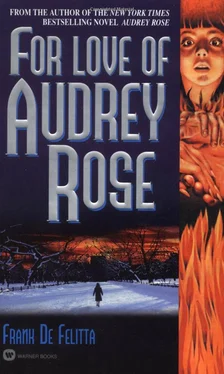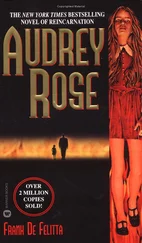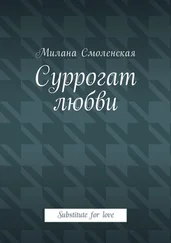“You’re welcome, Jennie,” he chuckled.
“Three-two-one,” she said softly.
Hoover shrugged.
“One-two-three,” he answered, looking for a stamp.
He licked the stamp and patted it onto the envelope. He wearily tossed it into the “out” wire basket. He lay back in his chair. It was a quiet afternoon. It was nearing three years since he had first seen Janice and Ivy outside the School for Ethical Culture. A rainy day, in a sea of umbrellas. Janice had looked as he had imagined. Brunette, a bit chic, something decisive about her, but fragile. Upstairs, Mr. Radimanath roared with Neville. A new turn of therapy — to let the boy know that rage was not offensive so he might as well give it up.
Jennie remained at the door.
“What is it, darling?” he asked. “What are you trying to tell me?”
Jenny instinctively retreated.
“Do you want a number?” he asked. “I’ll give you a number. Listen. Five-five-three-three. Five-five-three-three. Can you say that?”
“Five-five-three-three,” she said shyly.
So Jennie was willing to acknowledge that she understood a spoken number! She was hungry for numbers. Hoover did not have to write them down anymore.
“One-four-two-one,” he tried, smiling.
“Six-nine-five-four.”
“What? Let’s try again. Five-five-three-three.”
“One-two-four-eight-seven.”
Hoover laughed, scratching his head in amused frustration.
“That’s more numbers than I gave you,” he said. “What are you doing, adding them?”
His smile froze. Something cleared at the back of his mind as though he had crossed a strange threshold, into a room where he was now awake, where he breathed a different atmosphere than he had ever breathed before. Jennie waited at the door. For what?
“Jennie,” he said, leaning forward, “are you adding the numbers?”
She smiled like a leprechaun, unable or unwilling to understand what he asked. Hoover licked his lips, trying to fathom what she wanted.
“Seven-three-two-six-four,” he said.
“Seven-three-two-six-four.”
“Okay. Let’s see. I’d better write this down. Two-five-five-one-eight.”
“Nine-eight-seven-eight-two.”
Not a second’s hesitation. Hoover added the numbers: 98782. It was correct. He could not believe it.
“Eight-eight-one-five-six-three-two-two-four-eight,” he said.
She repeated the number in that soft, elusive voice, a voice that sounded like gauze curtains rustling in the autumn breeze.
“Nine-seven-three-five-one-one-four-two-nine-three,” he said.
“One-eight-five-five-no-seven-four-six-five-four-one.”
It took Hoover a few seconds to add his numbers. She was correct. Except that she said “no” instead of “zero.” He stared at her, amazed. He stood and walked toward her, but she darted down the corridor, and when he found her again, at the edge of the grass, she showed no signs of interest in him or numbers.
Hirsch remembered studies of autistic children who fixated on numbers, but he had never read of one who could manipulate them at such extraordinary speed. What was the meaning of her ability? And what was the extent of her gift? Did it end with addition or could she perform other feats? And was she trying to say something with the numbers? Hoover and Mr. Radimanath spent the rest of the evening preparing logical and numerical tests for Jennie.
In two weeks they determined Jennie’s limits. There were none. She could add any column of numbers, no matter how long, provided they were enunciated clearly. And her answer, in that quiet, whispered voice, came back faster than they could write down the numbers themselves. Suddenly she began to come up with extraordinarily long numbers. She was multiplying. Hirsch bought an electronic calculator to keep up with her. Jennie could divide. Strangely, she never subtracted. Nor did they know why she sometimes added the numbers, sometimes divided, other times multiplied. And who had taught her? She was not old enough to have been even in nursery school.
“Perhaps, in a previous incarnation, she was a mathematician,” suggested Mr. Radimanath.
Hoover’s head jerked around.
“Do you really think so?”
“Her gift is extraordinary, is it not? So fast. And never mistaken.”
“Yes. Extraordinary. I’ve written to Penn State. Maybe they’ve hit on cases like this.”
But the clinic at Penn State had not run across such mathematical quickness in autistic children. Only cases of memory of numbers, never manipulation of them. They suggested tests with letters and words. Memory tests, manipulation tests. The tests were performed, but Jennie stared blankly through the colored boards of objects, words, and letters, and went dead, signifying that she was through with the game.
Hoover became obsessed with Jennie. He knew that she was trying to communicate with him, but her only language was the one of pure number. What was the meaning behind her burgeoning and fixated talent? In some way she knew the mystery of the autist, the landscape of the lost, the universe of the undeveloped soul. Was that a pure soul? Did she know things that normal children forget when their personalities develop?
Behind it lay another hope. That Jennie could tell him, even in an intuitive way, what it was like to be himself. Somehow Jennie observed him in a pure and untutored way, a whole and trusting way, the way Audrey Rose had known him.
It was in the tiny girl that he detected a response — and even an answer — to his own motivations, to the meaning of his trials.
Hoover pondered long hours over the enigma of Jennie. Was she part of some grand design sent to him by divine providence to validate his work at the clinic? Was she a messenger from heaven sent to salve his troubled spirit and quiet the guilts he so keenly felt about Bill?
Hoover reread her data sheet from the Bureau of Welfare: Jennifer Dunn. No birth certificate. Admitted to Temple University Clinic, 1977. Diagnosed retarded, possible nervous disorder. Before that, three separate hospitals in Pittsburgh. Tendency to fevers, coordination markedly poor, no speech. A handwritten form was stapled to the dossier. Hoover turned his folder sideways. The girl, now called Jennifer Alice Dunn, found in the rubbish depot of a Woolworth’s store in central Pittsburgh in August of 1974. The woman who found her, Mrs. Ora Dunn, kept Jennie nineteen months in foster care, then, unable to deal with the child’s problem, brought her to the county relief agency.
And now he had her. In a sense he had adopted her; he took care of her, even, in a fashion, loved her as a father. She knew no other man as father. Why this need to see her as a substitute for Audrey Rose? Had he not finally purged the past from the present? According to the welfare records, Jennie was born between five and six months before Ivy Templeton died. Absurd, but it relieved his anxiety. Was it not a second sign? A sign to let the past recede into the past, a test of the soul’s strength?
Mr. Radimanath and Hoover spoke late into the night. Jennie, they agreed, had a force over him, and Hoover did not like it. There was a desire to possess her, to claim her soul, that was absent in all the other children. So he turned her case over to Mr. Radimanath and contented himself with elaborating Jackson’s unique fixation on car crashes.
But Jennie was never far from his sight or mind. Finally her sly, elfin, presence so tantalized him, that he took charge of her case once again and proceeded to a thoughtful series of video preparations, none of which elicited the slightest response from the girl.
The tragedy of autism was that retardation has the aspect of being willed, Hoover thought, watching Jennie squirm in the seat of the video cubicle. She refused to learn. Refused to be aware. Yet she was physically able to learn. Sometimes she tried to be deaf. It was all a deception. Why? To shut out pain. But there was no pain in the clinic. Something deep down had shut off, had left its imprint where the personality should have begun developing through language.
Читать дальше












